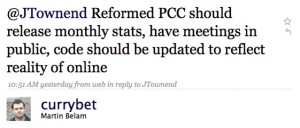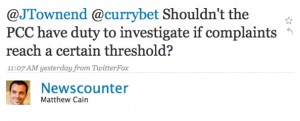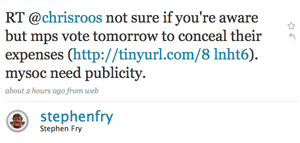Matthew Cain uses a recent complaint made to the Press Complaints Commission (PCC) against the Sheffield Star – and how it was dealt with by the paper – as an in interesting case study on the pros of self-regulation and the difficulties of dealing with apologies online.
“The online reaction to the story is interesting, with a number of people recognising a problem with the article both on the newspaper’s own comment section and on sheffieldforum.co.uk. With the data that the newspaper captures in the comments section, it wouldn’t be too difficult for the paper to contact all of the people who commented and to draw attention to the correction,” writes Cain.
“This case shows some of the strengths of self-regulation: a successfully resolved complaint, a complaint submitted by a third party, a prominent correction offline and a free service for the complainants. However, it also shows the unresolved difficulties of correcting articles sufficiently quickly, making corrections to stories online, and the problems associated with making sure the right people are held to account.”


